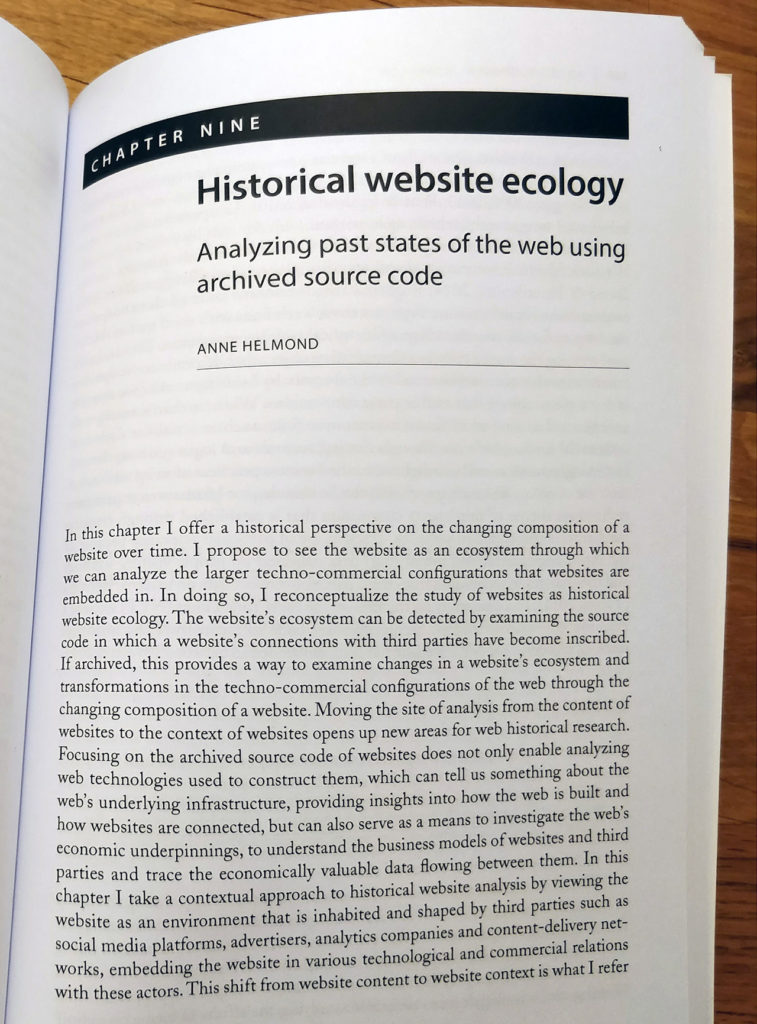My contribution to the edited volume Web 25: Histories from the first 25 Years of the World Wide Web by Niels Brügger on historical source code analysis has officially been published!
In this chapter I offer a historical perspective on the changing composition of a website over time. I propose to see the website as an ecosystem through which we can analyze the larger techno- commercial configurations that websites are embedded in. In doing so, I reconceptualize the study of websites as historical website ecology. The website’s ecosystem can be detected by examining the source code in which a website’s connections with third parties have become inscribed. If archived, this provides a way to examine changes in a website’s ecosystem as a way to transformations in the techno- commercial configurations of the web through the changing composition of a website. Moving the site of analysis from the content of websites to the context of websites opens up new areas for web historical research. Focusing on the archived source code of websites does not only enable analyzing web technologies used to construct them, which can tell us something about the web’s underlying infrastructure, providing insights to how the web is built and how websites are connected, but can also serve as a means to investigate the web’s economic underpinnings, to understand the business models of websites and third parties and trace the economically valuable data flowing between them. In this chapter I take a contextual approach to historical website analysis by viewing the website as an environment that is inhabited and shaped by third parties such as social media platforms, advertisers, analytics companies and content-delivery networks, embedding the website in various technological and commercial relations with these actors. This shift from website content to website context is what I refer to as the website’s ecosystem as a way to study changes in the techno-commercial environment of the web.
Please find the PDF here: Helmond-2017-HistoricalWebsiteEcology.
Helmond A (2017) Historical website ecology. Analyzing past states of the web using archived source code. In: Brügger N (ed.), Web 25: Histories from the first 25 Years of the World Wide Web, New York: Peter Lang Publishing, pp. 139–155.
